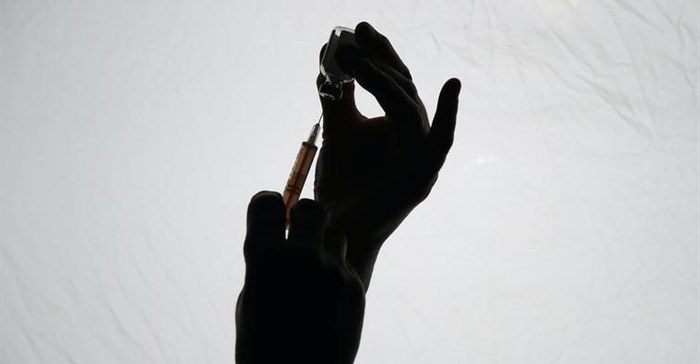Some key questions answered on Covid-19 vaccines for African countries

What’s immediately available for African countries?
African health regulatory authorities must approve the use of vaccines before they can be rolled out on the continent. National health regulatory authorities around the continent are working closely with regional and global regulatory bodies to ensure the approval processes will be efficient.
The AstraZeneca-Oxford vaccine was approved for emergency use by the UK health regulator on 30 December 2020 and will be available for use in Africa once regulators on the continent approve it. It is likely that the approval will be obtained in the first quarter of 2021. This vaccine was also tested in parts of the continent like South Africa.
At the time of writing, South Africa had secured 1.5-million doses of AstraZeneca-Oxford vaccine from the Serum Institute of India which is producing these vaccines for low- and middle-income countries. The national regulator is in the process of reviewing the relevant vaccine data in order to grant approval for its emergency use in the country.
The African Vaccine Acquisition Task Team established by African Union Chair President Cyril Ramaphosa recently secured a provisional 270 million vaccine doses for African countries. The vaccines will be supplied by AstraZeneca-Oxford, Pfizer-BioNTech and Johnson & Johnson. The distribution of these vaccines on the continent will likely depend on the population size of each country. Even with additional 600 million vaccine doses promised by the World Health Organisation’s Covax facility, the cumulative total vaccine doses available will only be enough for about half of the continent’s population.
Read more:
COVID-19 vaccine trials in Africa: what's promising, and what's problematic
Another vaccine that is likely to be available to the continent soon is that manufactured by Moderna. Pfizer-BioNTech and Moderna vaccines have already been approved for emergency use by the US as well as UK health regulators.
What about offerings from Russia and China?
The Gamaleya Research Institute of Epidemiology and Microbiology in Russia and Sinopharm in China allowed the public use of their vaccines before conducting large-scale clinical trials. This raised huge public concerns.
Conducting clinical trials and openly sharing the data from the trials is the international standard practice. The practice is to conduct three phases, all with smaller scale tests at first. Results from such trials are reviewed to assess safety and efficacy. This always precedes regulatory approval. If this route isn’t followed it is unlikely these vaccines will get approval from the national health regulators as there is no data to review.
Nevertheless, countries are buying vaccines from China. The Financial Times is also reporting that countries are buying Russia’s Sputnik V vaccine while the two leading Chinese manufacturers, Sinopharm and Sinovac Biotech, have signed deals with more than a dozen countries.
Read more:
Pressure is on to develop a Covid-19 vaccine, but corners can't be cut
But public safety and scrutiny is critical. Without data from the trials it will be difficult to get the public on board. Sinopharm has submitted clinical data to the World Health Organisation for review.
Which will be easiest to deliver in developing countries?
When Pfizer-BioNTech announced that their vaccine was 95% effective, they also said it had to be stored at a temperature of -70℃. Most low-income countries do not have the necessary cold chain infrastructure for storing and distributing this vaccine.
Read more:
Keeping coronavirus vaccines at subzero temperatures during distribution will be hard, but likely key to ending pandemic
Vaccines that require standard refrigeration conditions, like many of those used in existing immunisation programmes in these countries, would be easiest to deliver. The AstraZeneca-Oxford vaccine is one.
Johnson & Johnson has also developed a vaccine being trialled in Africa. The phase III results for this vaccine will be available in February 2021. If the vaccine is proven to be safe and effective, it will be the easiest to distribute as it requires the standard refrigeration. And more importantly, it requires just one dose, which is logistically easier to deliver.
Will new Covid-19 variants affect roll-out plans?
At present, it is thought that the mutations will not affect the efficacy of the vaccines. But more data is still required to be sure about this. Scientists and vaccine manufacturers are assessing if the current vaccines are effective against the new variants. Preliminary data are encouraging.
The roll-out is therefore continuing and tests will continue to assess if the emerging variants affect the vaccines’ efficacy.
Why there is so much concern about how quickly the vaccines were developed?
There is a lot of misinformation and incorrect messaging on social media platforms about the new vaccines. One incorrect message is that the vaccines were short-circuited and that this could have compromised them. It is important to emphasise that due diligence was adhered to and no short cuts were taken. These vaccines were tested properly and are proved to be safe. Additional monitoring of safety is ongoing as the vaccines get rolled out to more people following approval by the regulators. Safety monitoring will remain a key component of the vaccines roll-out.
This article is republished from The Conversation under a Creative Commons license. Read the original article.![]()
Source: The Conversation Africa

The Conversation Africa is an independent source of news and views from the academic and research community. Its aim is to promote better understanding of current affairs and complex issues, and allow for a better quality of public discourse and conversation.
Go to: https://theconversation.com/africa








































